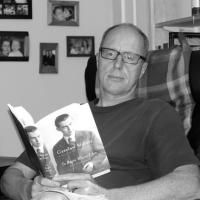“Superabundant being”: Disambiguating Rilke and Heidegger
Date
2019-01-01
Authors
Journal Title
Journal ISSN
Volume Title
Repository Usage Stats
views
downloads
Citation Stats
Attention Stats
Abstract
Rilke’s impact on the generation of writers reshaping philosophy and theology during the interwar years is arguably without parallel. Within this constellation, the case of Heidegger as a reader of Rilke presents unique challenges. For Rilke’s poetry neither quite allows for a wholly appropriative reading such as, for better or worse, Heidegger accords Hölderlin’s oeuvre; nor can Heidegger quite bring himself to subject Rilke’s poetry to critical appraisal. Instead, Heidegger’s analysis of Dasein as worked out in Part I of Being and Time (1927) and in his lectures on The Basic Concepts of Metaphysics (1929) seems haunted by an intellectual and expressive debt to Rilke that he can neither acknowledge nor fully resolve. For to do so would be to confront a possibility of human finitude, so luminously traced in Rilke’s Duino Elegies (1922), still defined by moments of transcendence - moments that can be captured in the fleeting plenitude of poetic intuition (Anschauung) and lyric image (Bild). Whereas von Balthasar, in volume 3 of his Apokalypse der deutschen Seele (1939), reads Rilke as fundamentally embracing Heidegger’s notion of strictly immanent and finite Dasein, I argue that the oeuvre of the later Rilke, without being reclaimed for a metaphysical, let alone religious position, nevertheless is shaped, both intellectually and expressively, by insistent, if enigmatic, moments of transcendence.
Type
Department
Description
Provenance
Subjects
Citation
Permalink
Published Version (Please cite this version)
Publication Info
Pfau, T (2019). “Superabundant being”: Disambiguating Rilke and Heidegger. Modern Theology, 35(1). pp. 23–42. 10.1111/moth.12458 Retrieved from https://hdl.handle.net/10161/23480.
This is constructed from limited available data and may be imprecise. To cite this article, please review & use the official citation provided by the journal.
Collections
Scholars@Duke

Thomas Pfau
"THOMAS PFAU (PhD 1989, SUNY Buffalo) is the Alice Mary Baldwin Professor of English, with a secondary appointment in the Divinity School at Duke University. He has published some fifty essays on literary, philosophical, and theological subjects ranging from the 18ththrough the early 20th century. In addition to two translations, of Hölderlin and Schelling (SUNY Press, 1987 and 1994), he has also edited seven essay collections and special journal issues and is the author of four monographs: Wordsworth’s Profession (Stanford UP 1997), Romantic Moods: Paranoia, Trauma, Melancholy, 1790-1840 (Johns Hopkins UP 2005), Minding the Modern: Intellectual Traditions, Human Agency, and Responsible Knowledge (Notre Dame UP, 2013), and Incomprehensible Certainty: Metaphysics and Hermeneutics of the Image (Notre Dame UP, 2022). He in the early stages of a new book project focused on the relationship between poetry and theology from 1800 to the present.
Unless otherwise indicated, scholarly articles published by Duke faculty members are made available here with a CC-BY-NC (Creative Commons Attribution Non-Commercial) license, as enabled by the Duke Open Access Policy. If you wish to use the materials in ways not already permitted under CC-BY-NC, please consult the copyright owner. Other materials are made available here through the author’s grant of a non-exclusive license to make their work openly accessible.
